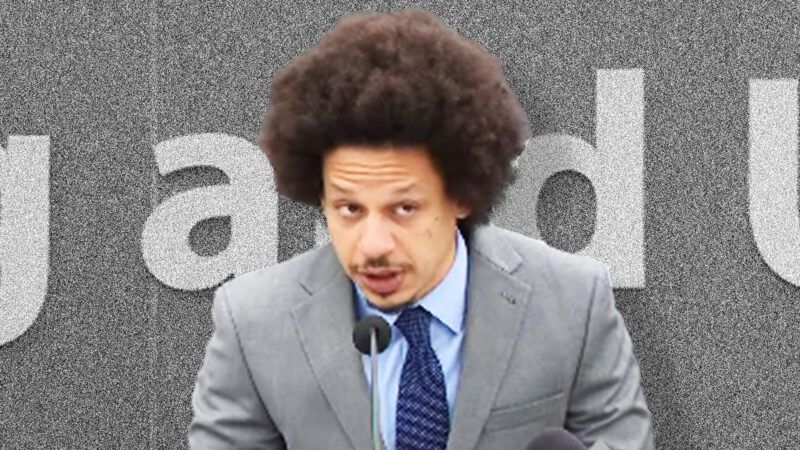Comedians Sue Atlanta Police for Racial Profiling Over Airport Searches
The lawsuit contends that after passengers are screened at federally mandated security checkpoints, Clayton County police search them again before they can board their flight.

This week, two comedians filed a federal lawsuit against an Atlanta-area police department, alleging racial profiling at the city's airport.
Atlanta's Hartsfield-Jackson International Airport is the busiest in the world, seeing over 75 million passengers in 2021, and it's Georgia's largest employer. It is located within the jurisdiction of the Clayton County Police Department (CCPD). According to the lawsuit, CCPD officers routinely conduct searches on passengers as they attempt to board their flights. The Atlanta Journal-Constitution refers to the process as part of the CCPD's "jet bridge interdiction program."
In April 2021, Eric André, an actor and host of Adult Swim's The Eric Andre Show, tweeted that he was "racially profiled by two plain clothes Atlanta PD police" in the Delta Airlines terminal. "They stopped me on the way down the bridge to the plane for a 'random' search and asked [if] they could search me for drugs. I told them no." He referred to the incident as "Jim Crow racism." A CCPD spokesperson later referred to the encounter as "consensual." After André's tweets went viral, Clayton English, an actor and stand-up comedian, reached out about a similar incident that happened to him in October 2020.
In a press conference announcing the lawsuit, both André and English disputed the term "consensual." English said he felt "completely powerless" and compelled to comply. André stipulated that "When two cops stop you, you don't feel like you have the right to leave, especially when they start interrogating you about drugs."
André said the officers "singled [him] out" and approached him "ambush-style," asking "if I was selling drugs, transporting drugs, what kind of drugs I have on me." He called the situation "humiliating and dehumanizing" with other passengers "gawking at me like I was a perpetrator."
The lawsuit claims that the jet bridge program disproportionately targets passengers of color. Between September 2020 and April 2021, roughly the period between English's and André's encounters, CCPD stopped 402 passengers. Of the 378 for whom officers recorded the passenger's race, 68 percent were nonwhite and 56 percent were black.
Unfortunately, random unwarranted searches have become standard fare for travelers. The Transportation Security Administration (TSA) was created after 9/11 to make air travel more secure. But in practice, its purview expanded to include buses, trains, and even this year's Super Bowl, and it conducts thousands of random searches per year.
CCPD's program exists in addition to TSA checks, searching passengers who have already been screened at federally mandated security checkpoints. The lawsuit claims that the program is also remarkably unsuccessful: In over 400 stops, police only found drugs on three occasions.
In that same period of time, though, CCPD seized over $1 million in cash from 25 passengers. Despite there being no law against traveling with large sums of cash, police routinely take its presence as evidence of suspicious activity. Last year in Dallas, for example, police seized over $100,000 from a passenger on the basis that she reacted suspiciously when they asked her about it.
In Georgia, prosecutors need only prove by the preponderance of the evidence that cash was involved in criminal activity in order to justify the seizure of property, whereas owners must prove their innocence to get it back. Law enforcement, meanwhile, gets to keep up to 100 percent of the proceeds from whatever it seizes.


Show Comments (49)